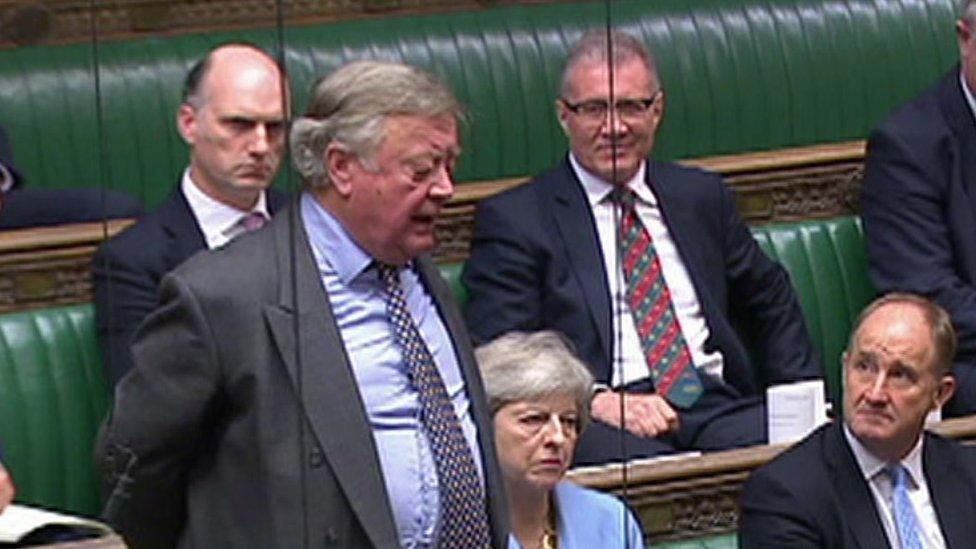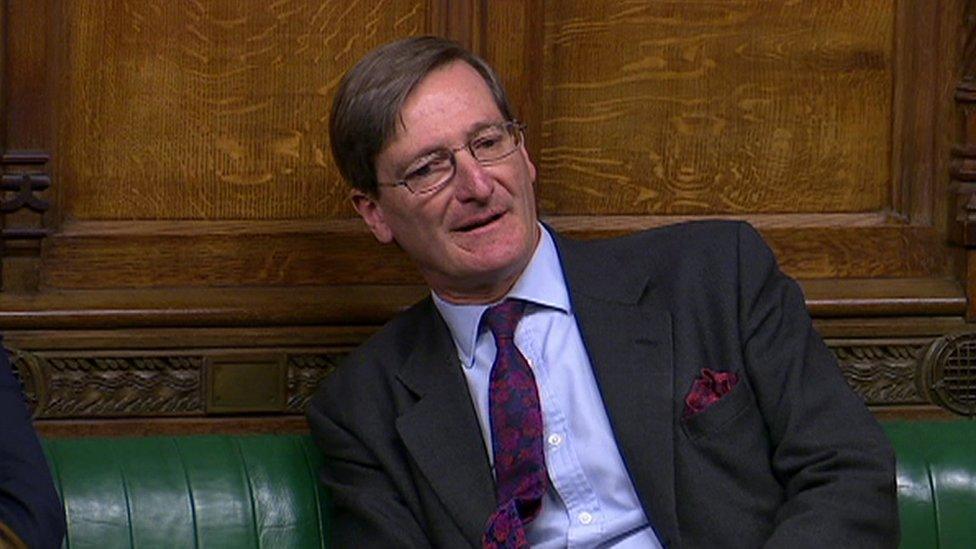PMQs verdict: Dominic Raab and Diane Abbott do battle
- Published
Diane Abbott becomes the first black MP at the PMQs despatch box
In the battle of the deputies, it's hard to triumph - and disaster is never far away. But neither of those imposters muscled into Diane Abbott and Dominic Raab's first Parliamentary duel.
For foreign secretary Mr Raab, standing in for Prime Minister's Questions while Boris Johnson was away addressing the party faithful in Manchester, this appearance was a considerable test.
He is also First Secretary of State which makes him the de facto deputy prime minister, and both his voice and his safety-first approach to answering questions betrayed a hint of nervousness.
He is still relatively new to cabinet office, while the women standing opposite him on this occasion had 23 years more Commons experience to bring to bear as she rose to question him.
Diane Abbott noted that her colleague Paula Sherriff had received four more death threats since challenging Mr Johnson's inflammatory language in the Commons last week, and raised the issue of the anti-abortion posters that had appeared in her Labour colleague Stella Creasy's constituency.
Mr Raab tried to sound sympathetic and conciliatory, but then repeated the prime minister's description of the anti no-deal legislation as "the surrender act".
Later questions received the same combination of semi-sympathy and counter-attack.
And Mr Raab may have felt that by the time Ms Abbot had exhausted her allotted six questions (she rose for a seventh, in the heat of the argument) that he was out of danger... but there was danger behind him.

Ken Clarke asked if the new government was just a ploy
First Ken Clarke, now one of the whipless Tory rebels, rose to relay Sir John Major's complaint that a major statement of Brexit policy was being delivered to the Conservative conference not to Parliament, and that most of the cabinet hadn't been consulted.
It wasn't really a question, more a blast of scorn.
Mr Clarke said he was willing to vote for any deal, but hoped the new policy was not a mere ploy to blame the EU for a failure of negotiations.
"More," bellowed the Labour benches.
Mr Raab floundered a bit, promising the details would be published in Parliament today.
A little later, former Attorney General Dominic Grieve - one of Mr Clarke's partners in rebellion - asked if government special advisers were allowed to tell "outright lies".

Dominic Grieve was not impressed with the reply to his question
His complaint was about a story in the Mail on Sunday - which, he believed, had been briefed by the PM's special adviser, Dominic Cummings - that Downing Street was investigating whether the EU had funded the legal advice for his legislation to block a no-deal Brexit.
There had been no money and there was no investigation because the UK was not yet a police state, he added.
Mr Raab shouted something about advisers advising and ministers deciding, and repeated the term "surrender act" but didn't provide any real answer.
And you can bet that Mr Grieve isn't about to let the matter drop.
Nor were there answers about how the government plans to observe the requirements of that act. Several challenges from Labour MPs were met with the double assertion that the government would obey the law and that the UK would leave the EU on 31 October, come what may.
So at the end of the deputies' joust, no-one was any the wiser.